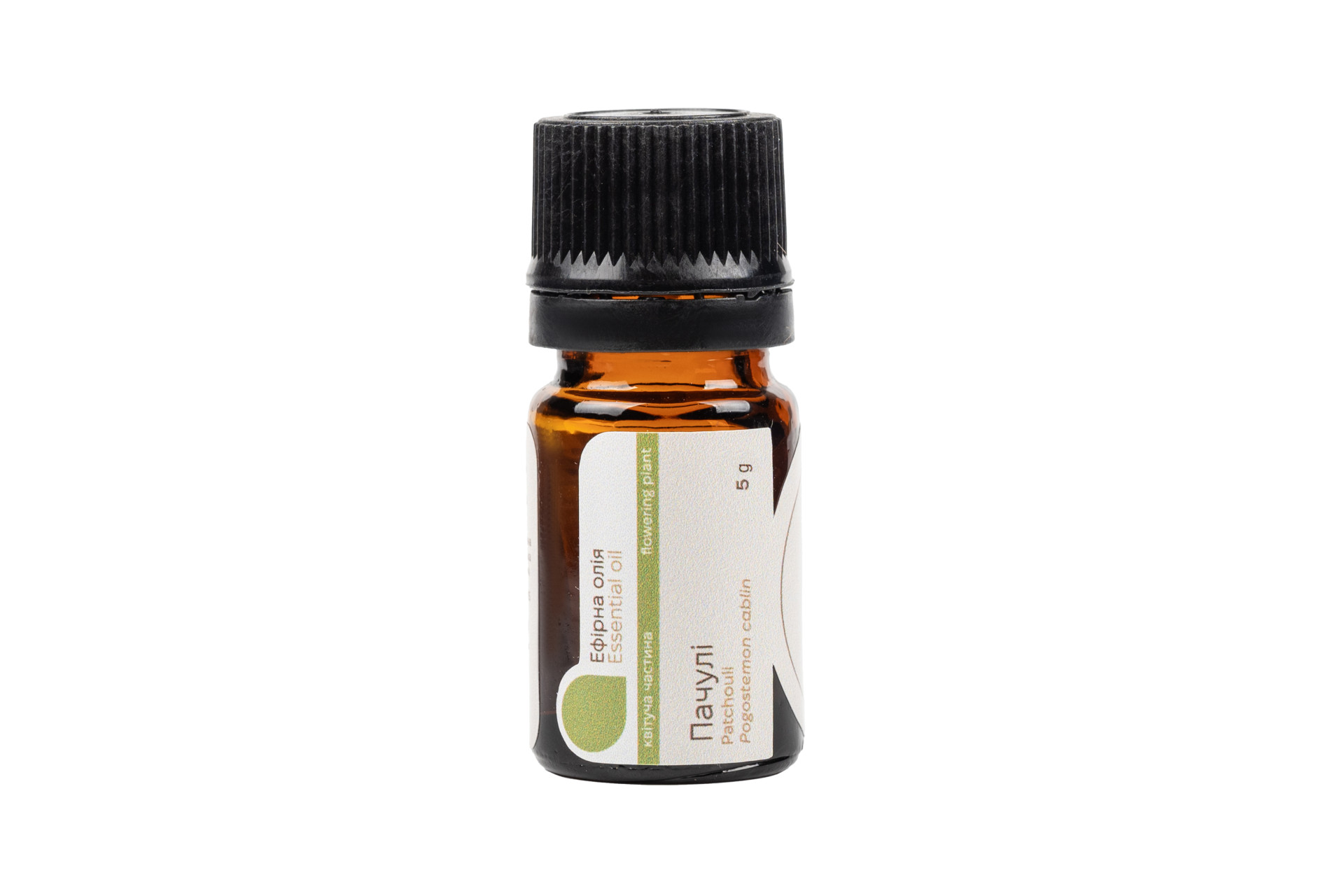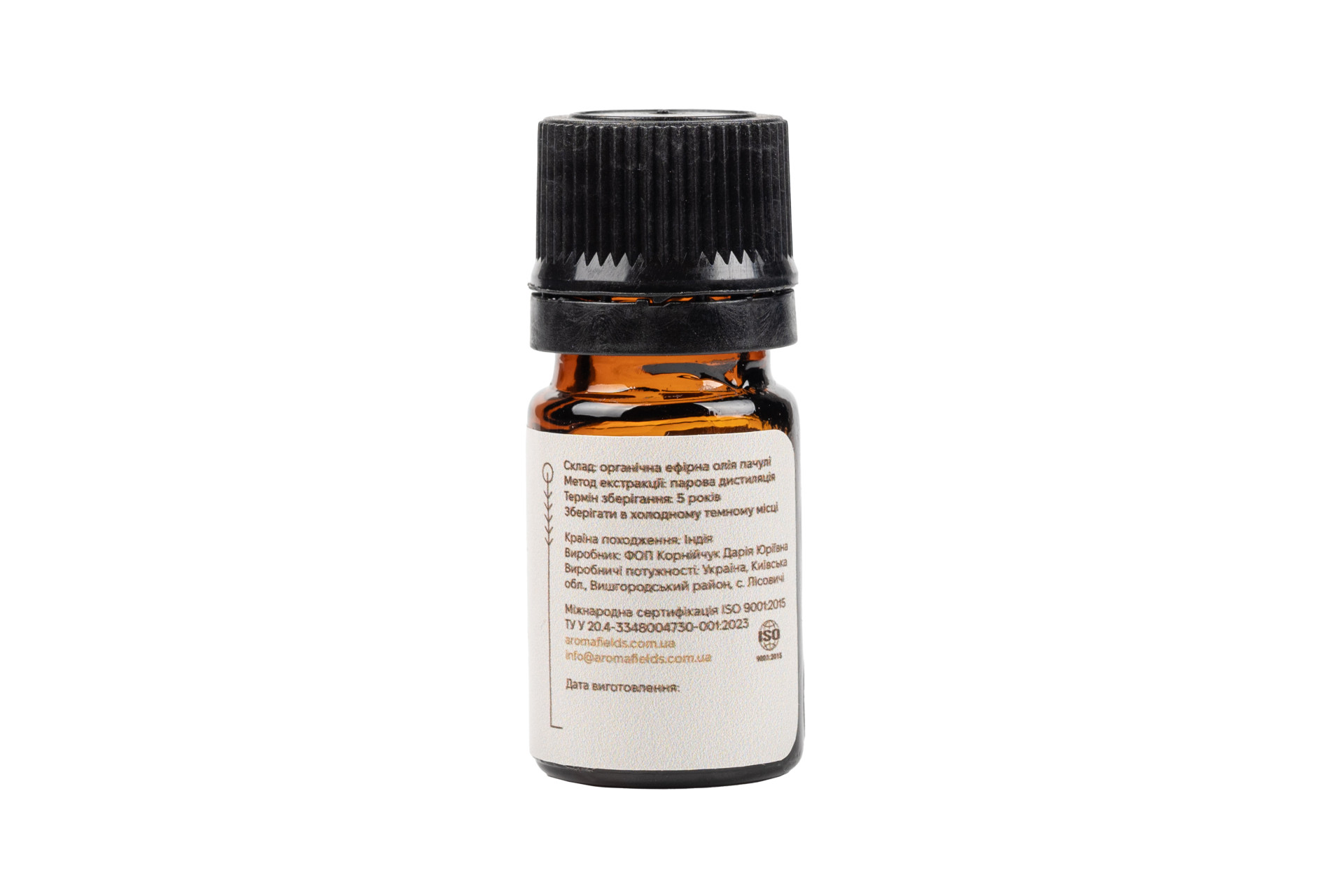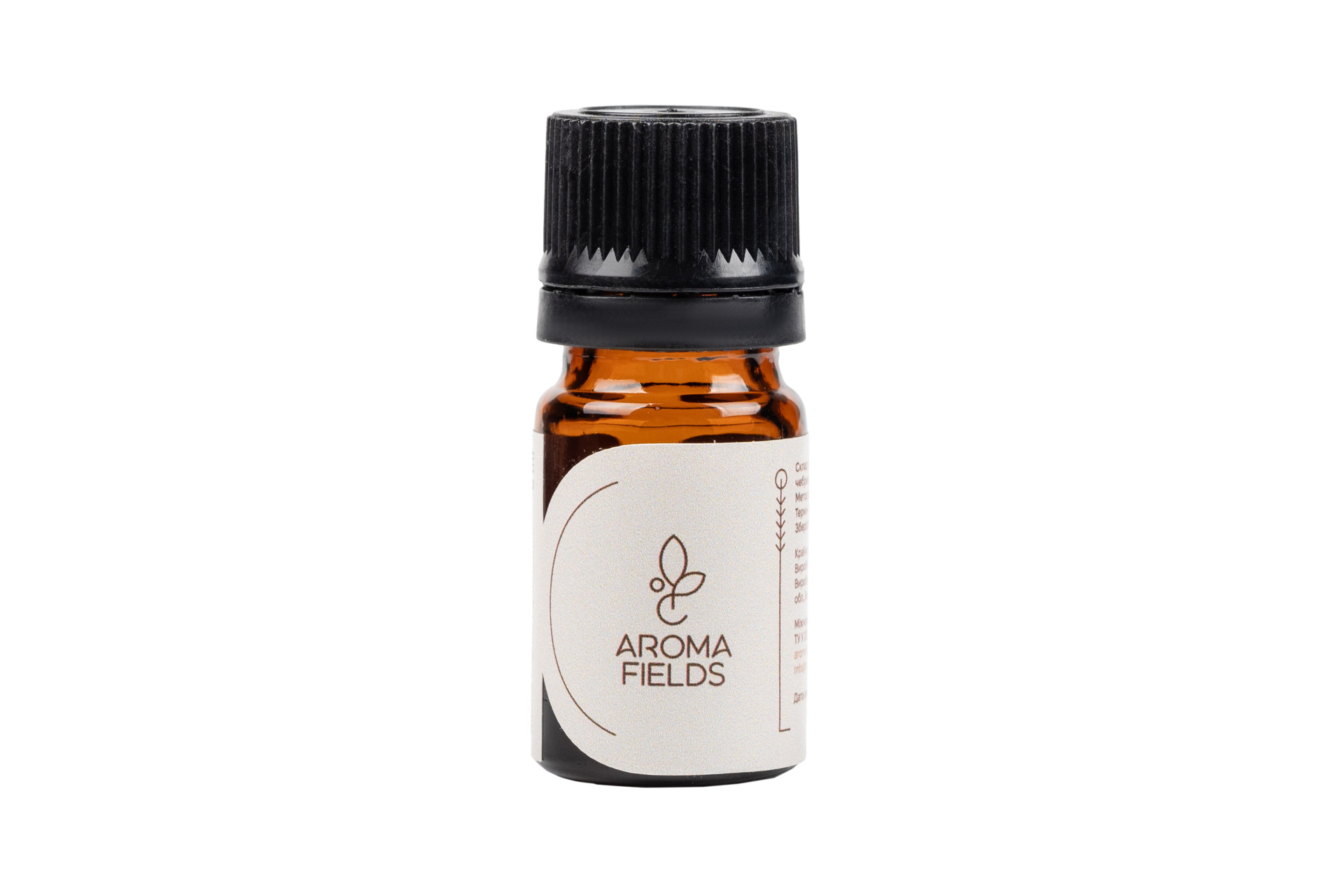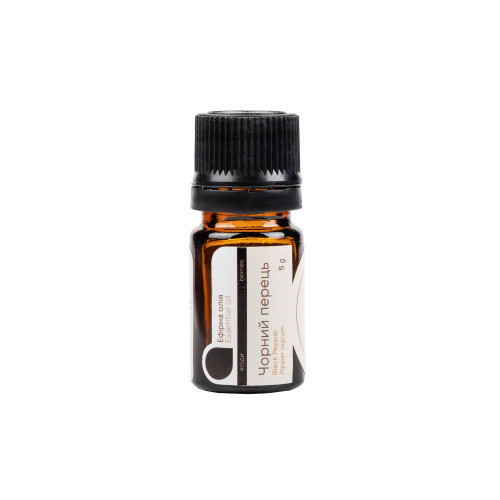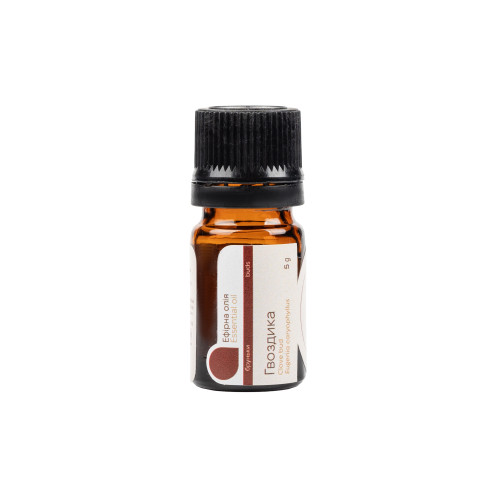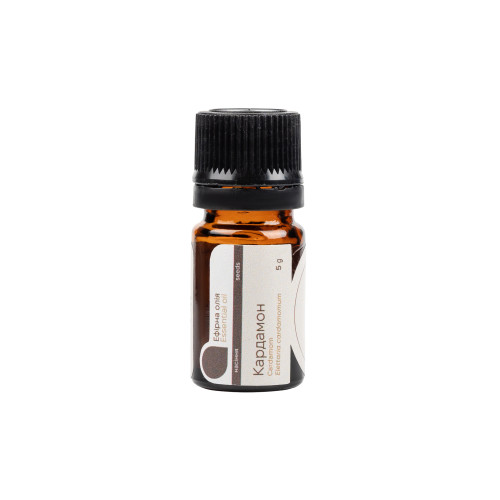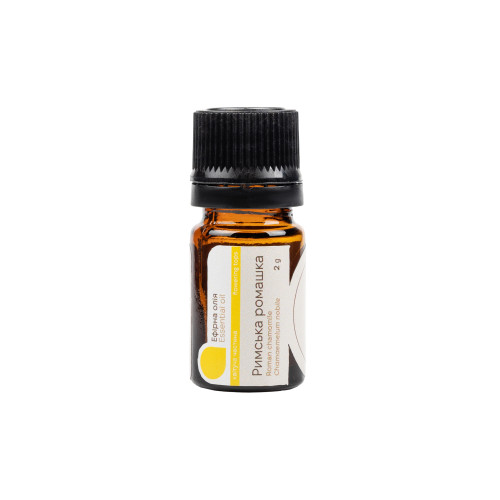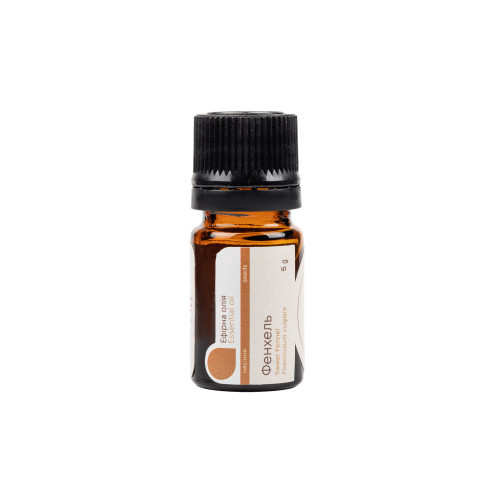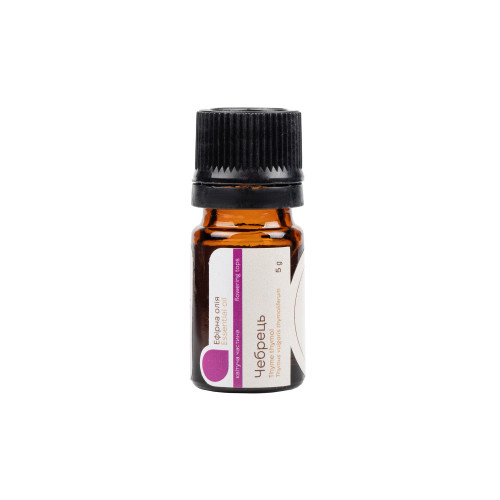Patchouli organic essential oil
-
580 UAH
In Stock
Organic patchouli essential oil (Patchouli)
Pogostemon cablin
Composition: 100% organic and therapeutic patchouli essential oil
Country of origin: India
Extraction method: Steam distillation
Plant part: leaves
Shelf life: 60 months
Storage conditions: in a cool, dark place at a temperature no higher than +20°C (it is preferable to store in the refrigerator if you rarely use it). Avoid direct sunlight and warm/hot surfaces. Do not expose to oxidation and ingress of air.
Profile:
skin, neuroendocrine, digestive, circulatory, nervous systems
Therapeutic effect:
Analgesic, digestive, antimicrobial (antifungal, antibacterial, antispirochetal), diuretic, antiemetic, venous, antipyretic, antiseptic, anti-inflammatory, antiallergenic
Symptoms for which patchouli essential oil is recommended for use:
hypertensive conditions with restlessness, irritability, insomnia, sexual anxiety; chronic stress conditions, pain, including headache, colic, angina pectoris, neuromuscular pain, chronic dyspepsia, diarrhea, intestinal microflora dysbacteriosis, candidiasis, intestinal hyperpermeability with food allergy or sensitivity, gluten sensitivity, ulcerative colitis, inflammatory bowel disease, adhesions; nausea, vomiting, hemorrhoids, fever, food poisoning, oily skin, clogged pores, dandruff, acne, seborrhea, inflammatory eczema, dermatitis, wrinkles, scars, wounds, deodorant, repellent
Methods of use:
Diffusion, nasal inhalation, steam inhalation, general massage and massage of reflex points in diluted form, skin application, point application, oral (internal) application, bath, foot and hand baths
Precautions and contraindications:
- Contraindicated during pregnancy and breastfeeding
- Do not use essential oil for intravenous or intramuscular injections
- Do not apply essential oil directly to mucous membranes, nose, eyes, ear canal, etc
- Never heat patchouli essential oil for diffusion. Use only a special diffuser for spraying essential oils
The history of the use of patchouli
Historically, patchouli is deeply associated with the early 1800s and the cultural rebellion against the Industrial Revolution, as seen in the Orientalism art movement of the Napoleonic era. The enormous growth of trade between India and Europe at the time indirectly fueled the romantic sensibility by introducing the warm, sensual scent of patchouli into the Victorian cultural milieu. Among the imported carpets, clothing and woven accessories were layers of crushed patchouli leaves, which have always been used in Asia as a moth and small insect repellent.
It is worth noting that shawls from Kashmir, which were quickly anglicized as cashmere, always arrived saturated with the scent of patchouli, which suggested the mystery and exoticism of distant lands. The enduring popularity of the patchouli fragrance eventually led to the mass importation of the plant, from which the aromatic essential oil of patchouli was soon extracted.
Since the middle of the 19th century, patchouli oil has been widely used in perfumery. It is an important base note for mossy, woody and root notes in various types of perfumes, including oriental, chypre and fougere blends; as well as for non-alcoholic and alcoholic beverages of the food and flavoring industry.
Throughout Southeast Asia, including India, patchouli has a long history of medicinal use. It is one of the few herbal medicines that is common to all three traditional medical systems of the world: traditional Chinese, Ayurvedic and Greek. These medical systems know that the herb is effective for regeneration, disinfection, hydration and cooling. It is used both for local treatment and for skin care in general.
Patchouli essential oil as a therapeutic agent
Today, the essential oil is effective in various cosmetic preparations for the care of rough, irritated, dry or tired skin. According to some scientists, patchouli acts like vetiver, able to deeply moisturize the epidermis and increase the elasticity of the skin. In the form of compresses, salves, and the like, patchouli is a versatile topical remedy for many conditions including inflammation, tissue damage, and infection.
Because patchouli shows a special connection with both the nervous system and the digestive tract. The essential oil will be effective in disorders that affect three components at the same time: the intestinal nervous system, the intestinal mucosa and the synonymous microflora. Patchouli essential oil simultaneously reduces mental and emotional stress on the intestines, reduces excess mucus, restores the intestinal mucosa and reduces fungal dysbacteriosis. A secondary action involves suppressing any existing inflammation. Patchouli can treat a number of gastrointestinal conditions, ranging from irritable bowel syndrome or mucosal colitis with chronic excess mucus production and diarrhea to intestinal dysbiosis.
Although patchouli oil is not made from wood, its aromatic energy is primarily sweet-woody and secondarily rooty, making it a true carrier oil. Like Atlas cedar, patchouli has a strong centering effect that strengthens the lower abdomen, the haru. Mentally, this creates a stabilizing effect that centers the person in their physical body. Thus, patchouli oil, used by inhalation, is a remedy against worries, obsessive thoughts, and anxiety. On an emotional level, this scent provides a licorice-woody anchor for feelings of confusion, insecurity, or loss of security.
Related Products
390 UAH
1 290 UAH
1 680 UAH

